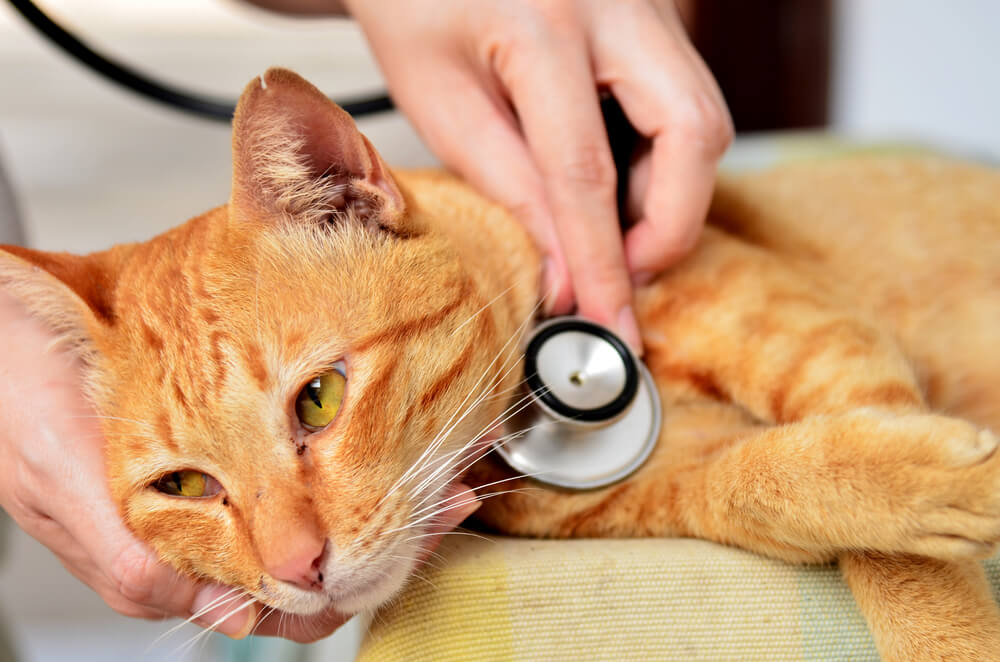
During your pet’s appointment, we may recommend that we perform blood work. Pet owners often are unsure about the information we learn from blood work, and why the tests are so important for reaching a diagnosis or monitoring their pet’s health. However, blood work is a critical part of keeping pets happy and healthy, so our Towne Centre Animal Hospital team wants to clear up any confusion about the purpose served by your pet’s blood work, and the meaning of those results. Here is our guide to frequently asked questions about cat and dog blood work.
Question: What common blood tests may be performed on my pet?
Answer: While a wide variety of specialized blood tests can pinpoint disease processes or monitor a pet’s health condition, only a few tests are commonly performed in general veterinary practices. Typically, if we recommend blood work for your pet, testing will include a complete blood count (CBC) and a blood chemistry panel. Various types of chemistry panels can be run, but we will tailor them to best determine your pet’s needs.
Q: What does a complete blood count evaluate in my pet?
A: A complete blood count provides a quantitative analysis of the numbers of your pet’s red and white blood cells, and a platelet count. A low number of red blood cells can indicate anemia and interfere with the body’s ability to carry oxygen, whereas a high number can mean your pet is dehydrated. The various white blood cell types, which each perform a slightly different task, but overall contribute to your pet’s defense system, are counted. An abnormal white blood cell count can indicate infection or inflammation. If your pet has a low platelet count, they may have a bleeding or clotting disorder, which is important to know before performing surgery.
Q: What does a blood chemistry panel evaluate in my pet?
A: A standard blood chemistry panel evaluates your pet’s organ function (i.e., the liver and kidneys). Various enzymes are quantified, and elevations indicate kidney or liver damage. Glucose, which measures blood sugar and can indicate diabetes, is another important value. Some chemistry panels test hormone levels, such as the thyroxine hormone, which not only affects your pet’s metabolism, but also many other bodily functions. A hormone panel is often added to routine screening tests for older pets, who are more likely to develop hormonal disorders.
Q: What common situations require blood work?

A: While we won’t always recommend blood work for your pet, the results are frequently useful. Common situations that require blood work include:
- Prior to anesthesia or surgery — During a surgical procedure, your pet will need to be anesthetized. Anesthetic drugs are metabolized and eliminated by the liver and kidneys, so knowing how well they are functioning is essential for formulating a safe anesthetic protocol. Pre-anesthetic blood work also informs our veterinary surgeon whether your pet has any clotting issues, or an underlying infection. They will then take these conditions into consideration, and may postpone your pet’s procedure until their health status has improved.
- Therapeutic drug monitoring — Pets with chronic conditions, such as thyroid disease, diabetes, or osteoarthritis, will need lifelong medication to manage their condition. Medication dosages fall in therapeutic ranges that require monitoring through regular blood work, plus blood work results will inform us on your pet’s medication response, and any adverse side effects.
- Sickness or injury — While a physical exam can tell us a great deal about your sick or injured pet’s status, blood work gives us a more detailed inside look at their body systems. Blood tests can help us pinpoint a disease process, make an accurate diagnosis, and alert us to any hidden issues that may be missed on a physical exam.
- Wellness screening — Although blood work for apparently healthy pets may seem unnecessary, blood testing at your pet’s wellness visits is key to detecting disease in the earliest stages. When we have a baseline of your pet’s health, we can monitor patterns and changes over the years and spot illness sooner, providing a better outcome and more affordable treatment.
Is your pet due for their annual screening blood work? Perhaps they need regular monitoring for their chronic condition and medication? Whatever the reason, don’t skip your pet’s blood work, as these important tests can help ensure their good health. Contact our Towne Centre Animal Hospital team for an appointment.
